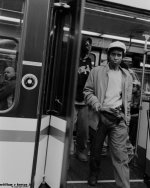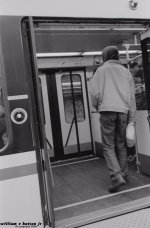willie_901
Veteran
After developing 6 rolls of Tri-X exposed at ISO 400 with D-76 1:1, I decided to expose a roll at ISO 800. Now it's time to develop that roll.
Kodak's data sheets say if you expose at 800, just devlop using the 400 time. While one could assume Kodak knows best, I think my current method underdevlops a bit. The shadows can be a bit dark in some negatives. For ISO 400 I use D-76 1:1 for 9:50 at 20 C. I agitate lightly. The grain and contrast are ok. For ISO 800 I think the negatives could be too under exposed.
The Digital Truth chart does not list anything for TriX/D-76 @800.
My question is: how would you develop Tri-X exposed at ISO 800?
Any suggestions for what to do using D-76?
Thanks,
willie
Kodak's data sheets say if you expose at 800, just devlop using the 400 time. While one could assume Kodak knows best, I think my current method underdevlops a bit. The shadows can be a bit dark in some negatives. For ISO 400 I use D-76 1:1 for 9:50 at 20 C. I agitate lightly. The grain and contrast are ok. For ISO 800 I think the negatives could be too under exposed.
The Digital Truth chart does not list anything for TriX/D-76 @800.
My question is: how would you develop Tri-X exposed at ISO 800?
Any suggestions for what to do using D-76?
Thanks,
willie



